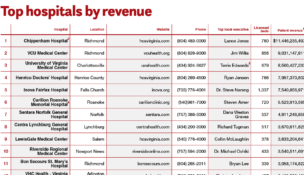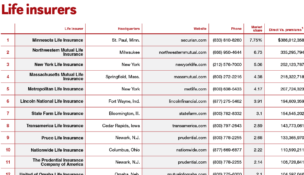Health insurance is seen shifting to a business-to-consumer model
Health insurance is seen shifting to a business-to-consumer model
The Affordable Care Act has forced a paradigm shift onto health insurance companies, says John DeGruttola, senior vice president of marketing and sales at Virginia Beach-based Optima Health.
“It changes the way we do business. We’re moving from an employer-based, business-to-business model to more of a business-to-consumer model. There are a lot of changes to make, culturally and systematically,” he says. In that way, health insurance could end up being more retail-oriented than it has ever been before.
These changes might have happened anyway, but the ACA has expedited them. “Change makes opportunities,” DeGruttola says.
For example, Optima just launched a new product called Optima BusinessEDGE, a self-funded plan for small businesses with 20 to 50 enrolled employees. Self-funded plans have typically been an option only for larger employers, but DeGruttola says that this new product is one way to help the small-group market.
Some employers, especially those with younger, healthier employees, could see a larger increase in rates this year because of new mandated benefits. Having new options for this group could help employers continue to offer group health as a benefit, he says.
DeGruttola says health insurers are taking a wait-and-see approach on two recent conflicting federal court rulings. They concern the government’s ability to offer premium tax credits to people who sign up for health-care coverage using healthcare.gov.
“We’ve been thrown a lot of curveballs. Every day has a new challenge for us. Regulations, final drafts get released every day,” he says. “We see this progressing through appeals and courts. But right now it is business as usual for us.”
o

















